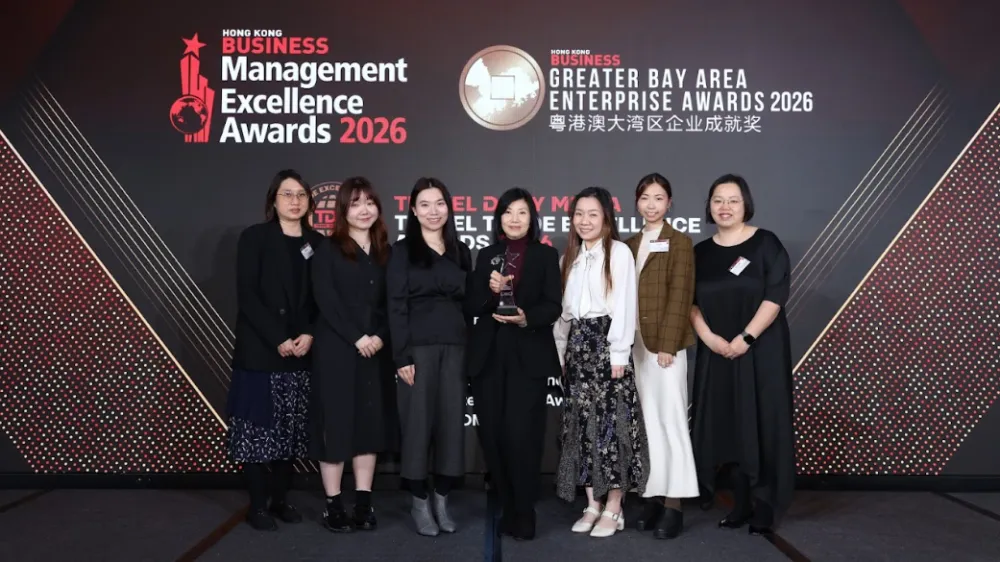
Mazars HK's Anthony Tam gives advice to young professional tax advisors
The tax specialist joins the panel of judges at Hong Kong Business Awards 2020.
Anthony Tam, executive director for tax advisory services at Mazars Hong Kong, has more than 20 years of professional experience in international taxation, as well as Hong Kong and China tax, specializing in M&A and transfer pricing.
Anthony has extensive experience in cross-border mergers and acquisitions (M&A) projects in the Asian Pacific region including Mainland China, Hong Kong, Singapore, Thailand, Taiwan, Korea, Philippines, and India.
He also has a proven track record in transfer pricing in China, serving as the advisor to two Bilateral Advance Pricing Agreements (BAP), one of which is a complicated agreement involving export and domestic sales and payment of royalty.
As a tax specialist, Anthony has been involved in teaching. He was a lecturer of the in-depth tax course of the Canadian Institute of Chartered Accountants, the only in-depth tax course offered in Canada, and also at the Faculty of Commerce of the University of Toronto.
His personal commitment to educating the next generation of tax advisors has not weakened over the years as he now gives China taxation lectures at the Tax Academy of Singapore, and is one of the two course directors of the Advanced Diploma in Taxation offered by the Hong Kong Institute of Certified Public Accountants, (HKICPA).
In an interview, Hong Kong Business chatted with Anthony who will join the panel of judges at this year’s Hong Kong Business Awards, to celebrate exceptional businesses in Hong Kong and give recognition to their outstanding initiatives.
Which particular markets or sectors are your main focus? Can you share with us your work experience or any backstory that has contributed to your professional career?
I am a professional accountant with tax specialty, now an executive director with Mazars Tax Services Limited, part of a second tier international accounting firm, Mazars. My main focus now is on providing advice on the hot international taxation topic of transfer pricing. I think one thing that a professional tax advisor should know is to observe the changes in the business environment, adapt to the changes and make sure you are ahead.
I was a Canadian tax advisor before I moved to Hong Kong back in 1997. It was then when a lot of Hong Kong people migrated to countries like Canada and Australia. At that time, I provided a lot of Canadian tax planning to wealthy individuals and businessmen in Hong Kong, notably in establishing a so-called “off-shore trust” to shelter income from Canadian taxation. The business was so significant that I moved to Hong Kong. Nevertheless, the business died out soon after Hong Kong was stabilized, and the migration wave was phased out. I picked up doing Hong Kong taxation work.
When the Chinese economy took off, and the need of Chinese tax advice was starting to boom, I learnt about Chinese taxation, and actually moved to Shenzhen for a couple of years to do Chinese tax advisory work. The area of transfer pricing started mainly from the US and the European countries. Back in the early 2000’s, transfer pricing was never an issue among tax authorities in Asia, other than Japan and Korea. Soon, China followed suit, and came out with its own transfer pricing rules and implementing advanced pricing agreements. I started doing transfer pricing work then, and picked up my expertise in that area, and was instrumental in the first few advanced pricing agreements between China and Japan.
So, my advice to young professional tax advisors is that one has to keep observing the changes, and make sure you are ahead of the others in adopting these changes.
What can SMEs and other homegrown businesses learn from the crisis? For those who have been badly hit, what do they need to consider to become more profitable and sustainable in the future?
I can only comment that digitalization is a developing direction for homegrown business. Many restaurant businesses are hit hard during the COVID-19 crisis. They change to “ take-outs”. Can they go one step further to go to ordering through electronic ordering? During the China-US Trade War, when heavy US tariff was imposed on many Chinese made goods, one of my clients, a SME, started to use digital as means to sell their products, instead of relying on the normal channel of selling to distributors in the US. By selling through e-commerce, and utilizing the exemption from US Customs Duty, as long as it meets the criterion on the imported amount per shipment, accorded to individual customers in the US, the client managed to increase their sales by selling through the e-commerce channel.
What’s your take on international companies moving their operations out of the Mainland? Where are the opportunities and how does Hong Kong fare in all these?
The move of international companies out of the Mainland is not as significant as people think. Many international companies may have the view of cheaper costs when they moved their manufacturing operation into China many years ago. Nevertheless, the Chinese market is also picking up, such that these multinationals are manufacturing in China as well as selling to customers in China. Having said that, some manufacturing operations are indeed moved to places such as Vietnam and Bangladesh. Hong Kong companies, in particular those in the role of trading and sourcing companies would have to shift some of their operations to Vietnam and Bangladesh as well. The opportunities for Hong Kong companies would continue to be there.
HKMA and others recently implemented the Wealth Management Connect in the Greater Bay Area. What roles does this play in Hong Kong’s position as a financial and innovation hub and how does Hong Kong fare in all these?
Each of the municipalities in the Greater Bay Area is designated with certain development objectives. For example, Shenzhen is designated to be developing in the high technology and financial hub of the Greater Bay Area. Hong Kong would also be in the area of technology and financial hub of the region. As such, the young generation should focus in these two areas as well in order to advance further. Hopefully, once the COVID-19 crisis is behind us, Hong Kong will be getting into gear towards these goals.



















 Advertise
Advertise








